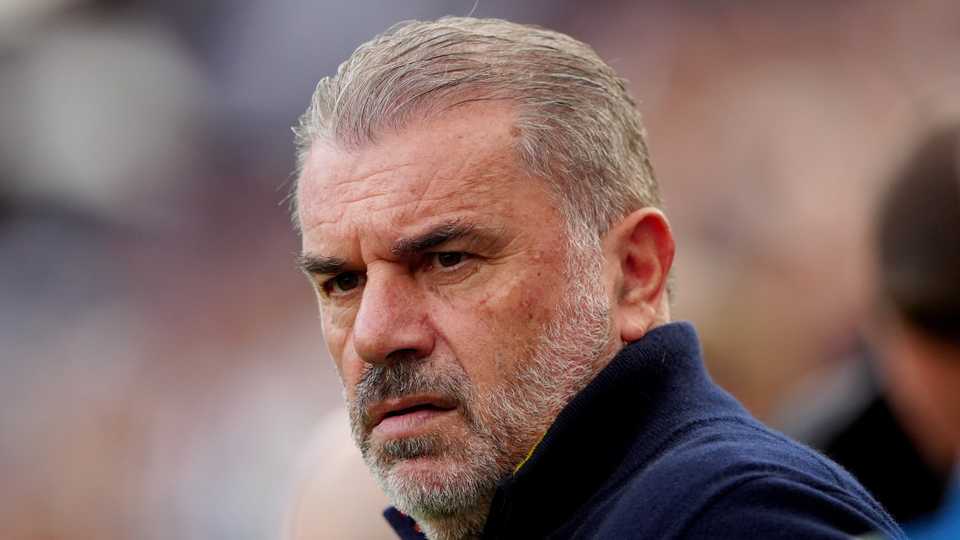BRENDAN RODGERS TOLD PLAYER, ‘YOU’LL NEVER PLAY FOR CELTIC AGAIN FOR SWAPPING SHIRTS WITH DUNDEE FC STAR AFTER REFEREE BIAS
Dundee recorded a historic 2–0 win at home — their first against Celtic at Dens Park in decades — thanks to a first-half header from Clark Robertson and an own goal which punished Celtic’s defensive lapses. The defeat was a blunt indicator of Celtic’s struggles in attack and their inability to turn dominant possession into clear chances. The result has added pressure on Brendan Rodgers and the club’s board.
The game itself was punctuated by fan unrest. Celtic supporters staged a vocal protest aimed at the club hierarchy — throwing tennis balls and similar items onto the pitch early in the match and unfurling banners critical of senior executives. Play was momentarily disrupted as stewards, players and staff cleared items from the field; notable figures including Celtic captain Callum McGregor and goalkeeper Kasper Schmeichel were observed helping remove the debris. Those scenes underlined that this defeat arrived against a background of simmering discontent rather than as an isolated poor performance.
VAR and refereeing decisions also amplified frustration. Celtic were initially awarded a penalty which was later overturned after VAR checked the footage — a decision that felt decisive in a match where chances were at a premium and small moments mattered. That overturn was cited by pundits and fans as an example of how marginal decisions can shape the outcome.
Where the “shirt swap” story comes from — and why to treat it cautiously
Online rumours claim that Benjamin Nygren exchanged shirts with a Dundee player named Hamilton (a Dundee squad member), and that Brendan Rodgers reacted furiously, allegedly telling Nygren he “would never play for Celtic again” for showing camaraderie with an opponent following what many Celtic fans perceived as biased officiating that had gone against them.
I searched mainstream match reports, club statements and respected outlets for confirmation of:
- a post-match shirt swap involving Nygren and a Dundee player called Hamilton, and
- a disciplinary rebuke from Rodgers in the form attributed in the message.
No major media outlet, club release, or post-match transcript corroborates those specific claims. The independent and reputable match coverage focuses on the scoreline, the protests, the overturned penalty and Rodgers’ post-match remarks about form and pressure; it does not report Rodgers publicly issuing a “never play again” instruction to Nygren over a shirt swap. On that basis the claim should be treated as unverified rumour rather than established fact.
At the same time, it’s worth noting that Benjamin Nygren did start the game — he had been in Celtic’s starting XI — and has been the subject of coverage in recent weeks about his role in the side. But presence in the matchday squad and being photographed on the pitch does not prove the alleged private exchange or any intense private dressing-room confrontation.
Why a shirt swap would be sensitive right now
Even if the shirt swap story is not confirmed, it’s easy to see why such an image would annoy sections of the Celtic support and attract scrutiny from the manager:
- Fan anger at the board and staff is raw. Supporters who feel the club is being mismanaged are less inclined to view players’ gestures towards opposing clubs sympathetically — swapping shirts could be framed by critics as tone-deaf or as disloyalty, even though, historically, shirt swaps are an ordinary part of post-match ritual in football. The protest atmosphere at Dens Park means small gestures are being read with a harsher lens than usual.
- Perception of referee bias and “us versus them” feeling. When supporters feel wronged by officials, players perceived to show friendliness to opponents immediately after a contentious match may be accused — unfairly or fairly — of a lack of fight or insufficient solidarity with the club. That perceptual dynamic can escalate quickly on social platforms.
- Managerial demands for focus and unity. Managers under pressure often stress “being a man” about dealing with pressure and expect visible signs of commitment from players — especially in the dressing room or immediately after a poor result. Brendan Rodgers, in post-match comments, emphasised responsibility and the need to handle pressure, lines that can be read as expecting a certain attitude from players going forward. If the manager privately criticises a player, it is usually handled internally; public threats of exclusion are rare and typically will be covered by the press if they occur.
How clubs normally treat post-match shirt exchanges
Shirt swapping is a near-universal sporting courtesy: opponents traditionally exchange shirts to mark a match. Across football, it is rarely punished — it’s a cultural tradition — and is typically celebrated as a sign of mutual respect. Clubs do, however, have disciplinary codes around conduct; if a player’s action is perceived to undermine team cohesion or is part of repeated off-field issues, managers may respond. But the leap from a shirt swap to “you’ll never play for this club again” would be a large one without corroborating evidence. Historical precedent shows that managers are more likely to handle these matters internally than to ban a player publicly for such gestures.
What Rodgers actually said after the match
In available post-match reporting Rodgers’ public comments focused on accountability, the team’s lack of quality in attacking areas and the need for players to handle pressure. He used metaphors about the squad’s current limitations and spoke about the work required to turn results around. Those remarks are consistent with a manager managing a crisis of form rather than a headline-grabbing public sacking over an in-game gesture. There is no published transcript in the outlets I checked where Rodgers used the phrasing attributed in the viral claim.
The responsible reading — two possibilities
- If the swap happened and Rodgers privately criticised Nygren: That would be a manager exercising internal discipline in response to a player’s behaviour that, in the manager’s view, undermined the team. Managers under pressure sometimes issue stern private warnings. If that is what transpired, it may never be made fully public beyond hints and leaks — and should be handled as an internal team matter unless a trusted reporter confirms details.
- If the story is false or exaggerated: Rumours spread fast after emotionally charged defeats. Social media, where fans vent and sometimes invent narratives to make sense of a bad result, is fertile ground for unverified claims. Without confirmation from reliable sources, it remains more likely the “Rodgers told Nygren he’ll never play again for swapping shirts” story is amplification — a dramatic reframing of normal post-match behaviour to fit the mood of fan anger.
What should followers look for next
- Official club communication. Celtic Communications or Rodgers’ press conference transcripts would be the authoritative places to confirm any disciplinary stance. As of the latest reporting, no such statement exists.
- Trusted beat reporters and match journalists. Look for follow-ups from established sports journalists who were at Dens Park or who have access to the dressing room. They will either corroborate or debunk the claim.
- Player or club social media. Players occasionally respond to rumours themselves; a denial or clarification from Nygren, his agent or club officials would be decisive.
Bottom line
Celtic’s 2–0 defeat to Dundee is real and consequential: it amplifies questions about team performance, recruitment and the board-manager relationship. The more sensational claim — that Brendan Rodgers told Benjamin Nygren “you’ll never play for Celtic again” because he swapped shirts with a Dundee player after the match — is not supported in mainstream reports and should be treated as unverified rumour until credible sources confirm it. Given the emotional context (fan protests and a contentious VAR moment), it’s easy to see why such a story would spread, but responsible coverage requires corroboration.








Post Comment